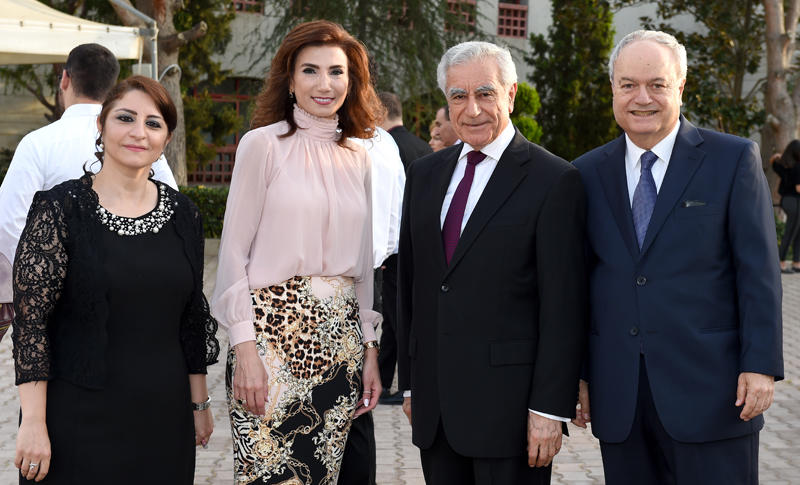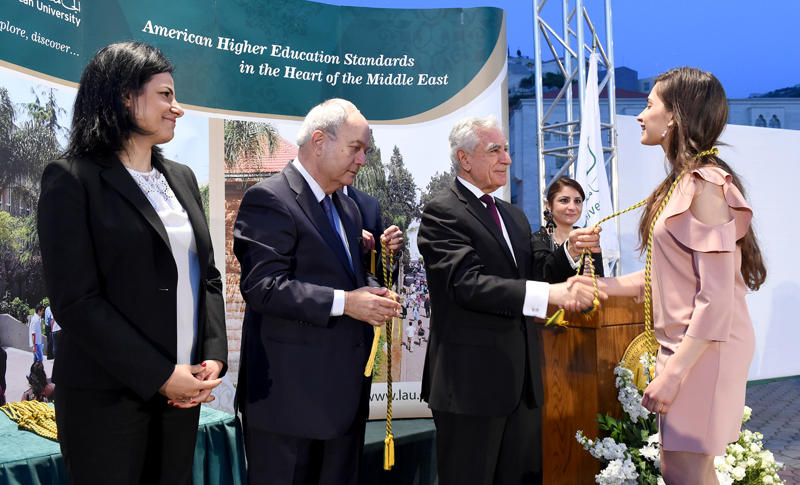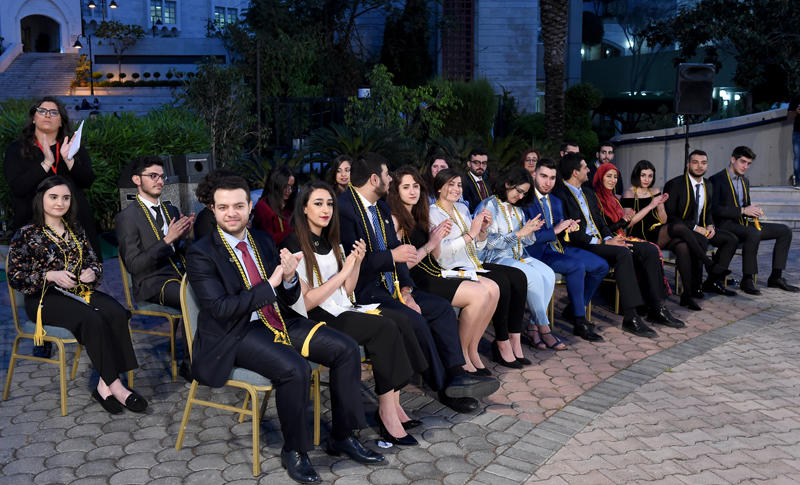Academic Excellence, Redefined
LAU celebrates its first two Honors Program cohorts.
Just a few years back, LAU embarked on its second strategic plan for academic excellence with the featured highlight of creating an honors program that provides enhanced educational opportunities for motivated, academically talented and inquisitive undergraduate students.
Today, 161 students across both campuses are enrolled in LAU’s Honors Program, the first of its kind in the Middle East. It spans eight different majors: architecture, bioinformatics, biology, business, computer science, economics, engineering and political science.
Earlier in April, the program honored its first two cohorts of graduating students from the classes of 2017 and 2018 at a ceremony held on Byblos campus and attended by the Advisor to the Minister of Education and Higher Education Jinane Chaaban, LAU President Joseph G. Jabbra, Provost George K. Najjar, and deans of schools, faculty and proud parents.
Chaaban thanked LAU for pioneering the establishment of the program and for “giving exceptional, motivated students an opportunity to challenge themselves.” She proclaimed the program another accomplishment that puts Lebanon and LAU on the map for academic excellence.
The program requires students to complete six special courses and attend three soft-skills workshops covering topics from setting goals and writing professional emails, to leveraging emotional intelligence and engaging in debate.
“At LAU, you found faculty that are committed – and passionately so – to your intellectual advancement and academic maturity,” Jabbra told the student honorees during the ceremony. He went on to specially thank Associate Professor of Biology Sandra Rizk, who is the also the director of the program and has led the efforts to establish it.
Rizk, in turn, thanked Jabbra, deans and faculty for “attracting students who are truly thirsty for knowledge” and dedicated most of her speech time to playing a series of student testimonials about the impact of the program.
“You don’t just get to learn from faculty, but also from other students who are just as serious about learning as you are,” said alumna Christina Lawandos (BS ’17) of the special dynamic that she experienced. “The class becomes an educational and an inspirational hub for both the students and the outstanding instructors assigned to give those classes. I don’t think it’s a coincidence that all my favorite courses at university were the Honors Program courses,” she added.
These Honors Program courses have very small student-to-instructor ratios, which promotes active learning and encourages discussions, critique, debate, research and critical thinking. To qualify, students need to maintain a GPA of 3.5 or above during their first year at LAU, and must demonstrate that they are willing to take their education above and beyond.
“You as a group, as well as individuals, represent the best of LAU,” said Provost Najjar addressing the honorees. He went on to point out that together, they make up the top three percent of the entire student body, which means that they have “a lot to be proud of, and even more to look forward to.”
“Harvard, Paris Tech, London School of Economics, Sciences-Po and LAU’s own Gilbert and Rose-Marie Chagoury School of Medicine are but a few names on the long list of our Honors Program graduates’ next stops,” said Rizk, adding that two students actually got accepted directly into Waterloo University and McGill PhD programs, straight after completing a bachelor’s degree at LAU.
Following the speeches, Jabbra, Najjar, Chaaban and Rizk took to the stage to distribute the honorary cords, pins and tassels to the graduates of 2017 and seniors of 2018, much to the delight of their proud professors and parents.


